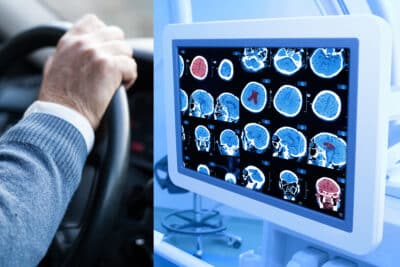The study involved a small group of institutionalized elderly who participated in hour-long gardening sessions (such as preparing the beds, weeding, trimming, harvesting, etc.) twice a week for 12 weeks, and a control group who did not do gardening. Both groups took part in the institution’s social activities.
By the end of the 12-week period, the group that did the gardening maintained their baseline performance on the static balance, while the control group showed a decline. Their gait speed also improved, while that of the control group did not change.
In dynamic balance, there were no changes between the two groups.
Exposure to green space, and particularly to gardening, is beneficial to mental and physical health, yet its effect on balance has been unknown.
Horticultural therapy has been shown as an effective non-pharmacological tool to reduce neuropsychiatric symptoms such as anxiety and depression, but we wanted to know how it affects balance
, says first author Valéria Farkas of the Faculty of Health Sciences, Department of Nursing, at Semmelweis University.
Dementia is associated with a decline in balance, while lower gait speed is strongly linked to more significant overall cognitive decline.
As we age, the structure and function of the systems involved in balance regulation and gait control deteriorate. As a result, older people have more difficulty maintaining their balance, and it is harder for them to regain it when they lose it. Their gait also changes, becoming more slow and unsteady. Therefore, in old age, maintaining balance and walking safely requires more conscious neural regulation, cognitive control; overall, more attention.
“This need for attention can be observed in everyday life when older people have difficulty concentrating on two tasks at a time. For example, when they need to talk while walking, they would often stop (walking) and concentrate primarily on talking,” says Éva Kovács, professor at the Faculty of Health Sciences, Department of Morphology and Physiology, Semmelweis University, corresponding author of the study.
Another significant finding was that those doing the gardening became more social.
Research shows that people with dementia have difficulty engaging in leisure or therapeutic activities. But conversations among the participants were more frequent even during periods outside the gardening sessions
, Farkas notes. They were more easily involved in other community activities as well, she adds.
Caregivers also reported reduced levels of aggression in patient-to-patient communication. The use of swear words, quite common otherwise, were barely observed during and after the therapy sessions.
The quality of family relationships has also positively changed. Participants proudly showed visiting relatives around and told them about their gardening activities.
As dementia cases are projected to rise, caregivers are looking at alternative/new interventions to prevent or slow cognitive decline. “Our results cofirm that horticultural therapy can be successfully applied to this task,” says dr. Éva Kovács adding the faculty has published several highly ranked studies on similar and other topics in recent years.
Dementia is geriatric condition described with a deterioration in memory and other cognitive abilities that impairs daily functioning. In 2023, more than 55 million people had dementia worldwide, but the incidence of dementia cases will likely grow in the coming decades simply because we live longer. Its prevalence is 1.5 % at the age of 65 but could increase to 30 % by the age of 90. According to some estimates, the number of dementia cases may triple by 2050.
Source: WHO, Semmelweis University, Prince M, Guerchet M, Prina M. Alzheimer’s Disease International. Policy Brief for Heads of Government: The Global Impact of Dementia 2013-2050.
Illustration: iStock by Getty Images – Unaihuiziphotography


